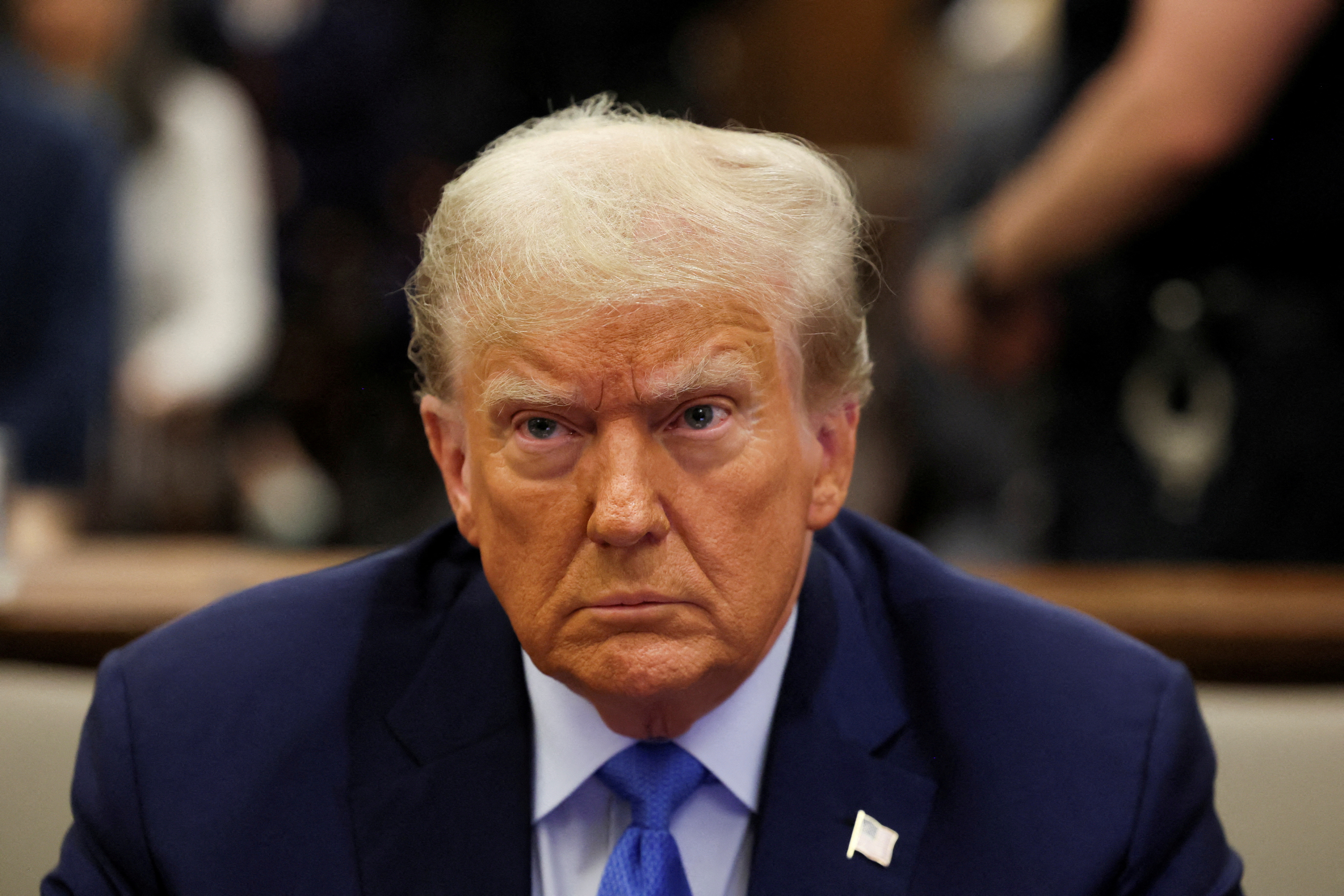In a recent twist to the ongoing legal saga surrounding former President Donald Trump, he has made headlines once again, this time by posting a staggering $175 million bond. This move is a strategic maneuver to thwart potential asset seizures in a civil fraud case initiated by the New York Attorney General, Letitia James. Let's delve deeper into the intricacies of this development and its implications.
The Civil Fraud Allegations
The civil fraud lawsuit filed by Letitia James centers around the accusation that between 2011 and 2021, Donald Trump systematically exaggerated the value of his personal and business assets. At the heart of the case are claims that Trump outrageously inflated key metrics like property sizes and values when promoting his net worth.
For example, the lawsuit contends Trump listed his Trump Tower penthouse in Manhattan as being over 30,000 square feet and worth $327 million on financial statements. However, public records cited by James show it was actually just 10,996 square feet and valuations did not justify such an astronomical price tag. Similarly, the AG alleges valuations for golf clubs, hotels, and other Trump buildings were artificially inflated when shared with lenders and other entities.

By potentially misrepresenting his assets via fraudulent valuations, James asserts Trump aimed to manipulate his financial picture to secure highly beneficial terms on loans, insurance policies, and tax breaks he may not have otherwise qualified for. If proven, this could meet the legal definition of intentional deception for personal gain - also known as fraud.
However, Trump denies the allegations, dismissing the suit as a politically motivated attack. His legal team will argue the valuations were good faith estimates reflecting the branding value added by the Trump name. But James has laid out evidence like affidavits from former Trump Organization employees about how property stats were intentionally distorted for financial documents.
The courts will need to pore over contested evidence and arguments to determine the merits of the case. If James prevails, it could expose Trump to substantial monetary penalties and damages relief. But if dismissed, it would deal a blow to the ongoing legal siege against the former president's business dealings.
Legal Maneuvering: Asset Seizures and Bond Posting
When James filed her civil lawsuit against Trump, she deployed aggressive litigation tactics by asking the judge to freeze Trump's assets before the trial through an injunction. These pre-trial asset seizures would have restricted Trump's use of his properties, cash deposits, and other funds while the case was pending. James argued this was necessary to ensure assets remained available should she ultimately win damages after trial.
However, Trump's lawyers strongly opposed this remedy, arguing it amounted to unwarranted financial punishment without due process. They claimed it would hamper Trump's ability to finance his legal defense and ongoing business operations. To avoid having his assets frozen without a full and fair trial, Trump decided to post a $175 million bond backed by his real estate holdings instead. This allowed his assets to remain under his control while furnishing security for a future judgment in James' favor.
%20%7D%7D)
By voluntarily posting such a sizable performance bond, Trump made pre-trial asset seizures by the court unnecessary. It guaranteed $175 million for James if she won, providing adequate assurances against any possibility of Trump hiding or improperly transferring assets before the conclusion of the case. At the same time, it permitted Trump to maintain financial flexibility and use his assets as he defended against the lawsuit's claims and allegations. Both parties achieved a resolution that balanced their competing interests pending a final decision on the merits.
However, Trump still risked potentially forfeiting the $175 million bond amount should he lose in court. But it averted the more immediate harm of having his properties seized outright before being found liable. The strategic maneuver kicked the can down the road while allowing the legal process to fully play out.
Related: Trump's Properties and the Bonds of Civil Fraud
Implications and Strategies
By posting such a sizable bond, Trump has bought himself time and ensured his assets remain under his control as the civil lawsuit unfolds. This strategic legal maneuver allows him to argue that asset seizures are no longer necessary since he has guaranteed $175 million would be available to satisfy a potential future judgment. However, the bond does not fully remove that long-term risk, as the funds could still end up in James' hands if she prevails in court. The bond posting therefore comes at a high immediate financial cost for Trump, given he has effectively frozen the use of such a large sum.
The bond amount itself sends a message to observers - it demonstrates Trump's claimed wealth and access to vast financial resources as he takes aggressive steps to defend his reputation against these fraud accusations. However, it also underlines the seriousness of the allegations, prompting questions about why such a substantial bond was deemed needed. Going forward, James will likely continue her investigation vigorously as victory could net her settlement funds. Meanwhile, Trump is left facing ongoing legal costs as he fights to clear his name through a protracted trial battle.
The implications of this bond move will largely depend on the outcome of the case. But for now, both sides have something financial at stake as the implications of the fraud allegations are hotly contested in a court of law.
The Broader Legal Landscape
While the New York civil fraud case will proceed on its timeline and merits, it's crucial to view it through the wider angle of Trump's far-reaching legal issues. Most significantly, the Manhattan District Attorney has been engaged in an active criminal investigation into the Trump Organization for several years now. This probe has explored alleged tax, insurance, and financial crimes. There is substantial overlap between this investigation and the civil case, as both have focused on Trump's business practices and the same company's financial records. The DA's office has already indicted Trump's longtime CFO, indicating the criminal case is well-advanced.

Depending on what is uncovered through ongoing cooperation between the DA and Attorney General, it's possible criminal charges could eventually be brought against Trump himself. The looming threat of indictment adds intense pressure as he combats the civil allegations. Further, Trump faces additional legal exposure through Congressional committees seeking his financial documents and the January 6th investigation of his actions surrounding the 2020 election.
With so many cases touching on related matters, Trump is shouldering a massive legal burden unlike anything faced by a former President before. The coordinated efforts across jurisdictions have placed Trump's business and post-White House conduct under an unprecedented level of scrutiny.
Conclusion
In essence, Trump's decision to post a $175 million bond serves as a pivotal moment in his legal battle against the New York Attorney General's civil fraud allegations. While offering temporary respite from asset seizures, it underscores the high stakes involved and the strategic maneuvers at play. As the legal drama unfolds, all eyes remain glued to the courtroom proceedings, awaiting the final verdict in this high-profile case.
Source: Trump posts $175 million bond in civil fraud case, averting asset seizures | Reuters





